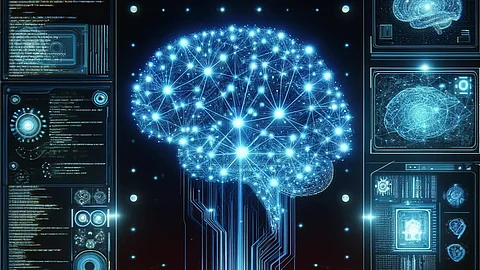A recent study conducted by American researchers has revealed that the integration of large language models (LLMs) into medical practice does not significantly improve physicians’ diagnostic reasoning compared to traditional tools. The study highlight the challenges of adopting artificial intelligence (AI) in clinical environments, indicating that advanced technology alone is insufficient to enhance medical outcomes.
The trial involved 50 physicians specializing in family medicine, internal medicine, and emergency medicine. These participants were divided into two groups: one group was provided with access to an LLM, specifically ChatGPT Plus (GPT-4), in addition to conventional diagnostic resources, while the other group relied solely on traditional tools.
This was assessed through a scoring system that measured the accuracy of differential diagnoses, the validity of supporting and opposing factors, and the next steps recommended for evaluation. Secondary metrics included the time spent per case and the precision of final diagnoses.
Key Findings
The results showed that the LLM group achieved a median diagnostic reasoning score of 76%, while the group using only conventional resources scored 74%. This difference of two percentage points was deemed statistically insignificant, suggesting that the inclusion of the LLM did not provide a notable advantage in diagnostic reasoning. Additionally, while the LLM group required slightly less time per case, the difference in time spent was also not significant.
This finding raises questions about the potential role of LLMs in enhancing diagnostic processes when effectively utilized. Despite the capabilities of LLMs to process extensive information and provide human-like responses, the study emphasized that these tools cannot replace the clinical expertise and nuanced judgment of experienced physicians. The researchers pointed out that merely providing access to AI tools does not ensure improved outcomes. Instead, effective integration of AI requires proper training and a comprehensive understanding of how to use these technologies efficiently.


